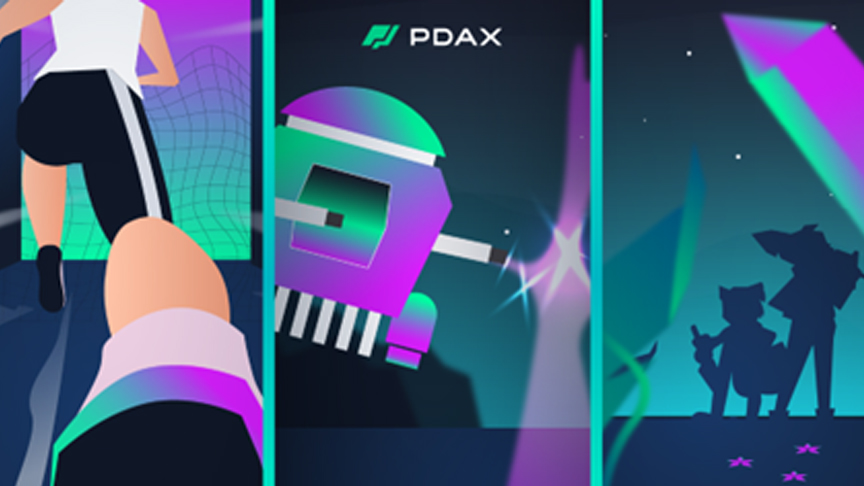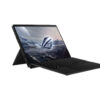Blockchain-based games are more popular than ever. According to a recent report by DappRader and BGA Games, blockchain-game playing activity has increased 2,000% since the first quarter of 2021, now making up over half of all blockchain activity.
A big part of the reason behind blockchain gaming’s recent popularity is the rise of the play-to-earn model enabled by non-fungible tokens (NFTs) on popular blockchains like Ethereum. In many of these games, players collect in-game NFTs that are tradeable to cryptocurrency and fiat currency. In the Philippines, it’s not uncommon anymore to find all sorts of people supplementing their income by playing these play-to-earn games.
Of course, new blockchains are emerging to offer an even wider selection of fun play-to-earn games. The Solana blockchain, for example, supports a wide variety of titles, from classic first-person shooters to open-world adventures in deep space.
Below are some of the Solana games just waiting to be played.
STEPN
This Web 3.0 lifestyle app rewards players to move and get fit.
How it works is that players will first have to download the STEPN app and buy an NFT sneaker, which the game uses to track a player’s daily movement. By walking, running, or jogging, the players receive a reward token called Green Satoshi Token, or “GST”.
Depending on the type of sneaker you get (options range from a walking sneaker to one for dedicated runners) and the amount of movement each session, the user is rewarded with in-game tokens. On top of GST, STEPN also offers its GMT governance token that can be used to upgrade/customize NFT sneakers. Both GST and GMT tokens can then be traded for stablecoins such as USDC, which can then be converted to fiat using crypto exchanges like PDAX. Being able to trade these tokens adds an extra incentive for users to get fit.
Aurory
One of the biggest titles on the Solana blockchain, this role-playing game takes players on a rollercoaster of action and fantasy while still enabling them to earn.
In Aurory, players must capture cute animated creatures called Nefties. Nefties are stored as NFTs in a player’s wallet and battle against other Nefties. The game has two modes: Player Vs Environment where players capture Nefties for rewards and Player vs Player weekly and monthly battles that rank players on a leaderboard and give rewards according to rank.
The game rewards players with its token AURY, which can be used to buy and customize Nefties and buy NFTs. These tokens can be exchanged on a number of exchanges, as well as Aurory’s in-game marketplace.
Starbots
The first-ever playable robot battle NFT game on the Solana blockchain, Starbots revolves around battling cartoon robots and earning new parts for your robot. Players will use each of these robot parts (such as a weapon, gadget, body, or wheel) to upgrade their avatar. Starbots promises to challenge a player’s strategic acumen, making battles progressively harder to win as players move on up in the game.
Through winning battles, earning new robot parts, and completing missions, players can earn GEAR tokens and collect NFT items. Additionally, players can also earn its governance token BOT. BOT can be used to vote for new in-game features and upgrading bot parts at different milestones in the game.
Starbots adds a new dimension of playability to the tried-and-tested concept of battling robots. By leveraging the Solana blockchain and adding tokens and NFTs to the mix, Starbots proves you can still have fun with a classic gaming formula.
Genopets
Genopets centers around creatures also called genopets and sets itself up as another move-to-earn game. How it works is that the game tracks the user’s movement and this is linked to your genopet, a spirit animal that evolves and increases in value the more active you are. How much you move controls your pet’s appearance, talents, and moves.
Players earn KI tokens as they explore the Genopets world and their pets evolve. They can also earn the game’s governance token GENE. These tokens can be used to speed up a pet’s evolution, add to their attributes, and even trade with other players. All in all, Genopets does a brilliant job of allowing players to earn while forming a bond with their virtual pets.
Ev.io
Ev.io takes the concept of a regular first-person shooter game and incorporates the blockchain. The free-to-play, browser-based game is easily accessible: one only needs to go to the game’s official site to begin playing.
The gameplay is also quite simple. Players explore a virtual world and begin shooting at opponents, sometimes teaming up with others and playing in a tournament format. To begin earning, players must first purchase an Ev.io NFT with a Solana wallet. Owning this NFT enables the game to track a player’s progress and discern who deserves a reward.
Players with the most kills are ranked on a leaderboard by the end of a match, and there is also the possibility of earning SOL, the native token of the Solana blockchain, per kill. How this works is that each kill in the game gives you a higher score, which can be used to acquire “e”, the game’s off-chain virtual currency. “E” can then be converted to SOL, with the conversion rate depending on the game’s sponsors and the USD to SOL exchange rate.
While the game’s premise is deceptively simple, Ev.io promises hours of fun.
Star Atlas
This space-based roleplaying game offers players the chance to explore a vast galaxy, mine resources, and conquer lands all in exchange for fabulous rewards.
Set in the year 2620, Star Atlas takes place in a world where three factions struggle for power: androids called Usturs, the ONI alien race, and humans called the MUD. Players must first pick which faction they want to play for, as they’ll later help this faction build cities, win wars, and explore unknown lands.
As they accomplish missions, players earn the in-game currency called ATLAS to buy in-game NFTs and equipment. A governance token called POLIS can also be earned for game-based decision-making purposes.
Decimated
If the words “open-world post-apocalyptic survival game” sounds appealing to you, Decimated has exactly what you’re looking for.
Players have the option to play as either a human survivor or a cyborg cop. The objective is to outwit and even battle a host of characters threatening your survival, ranging anywhere from cannibals to mutated creatures. More than just battling, a player’s success will depend on how well they fortify shelters, collect bounties, ambush, loot or trade. As players collect resources and beat enemies, players can earn the game’s DIO token and NFTs to trade.
DeFi Land
Agriculture-based DeFi Land is a cute, easy-on-the-eyes title where players complete minigames to earn rewards. Minigames center around activities like farming, fishing, tending to livestock, etc. Players can craft different tools and items, trade, and also play against one another in these minigames.
Like most games, DeFi Land has its native currency called DFL and a utility token called GOLD. DFL can be used to craft tools (for the minigames), trade, and even mint NFTs. GOLD, on the other hand, can also be used to trade goods and pay for player vs. player battles.
Though DeFi Land is based on the Solana blockchain, what’s interesting is that it is a multichain project. This means it can integrate with other blockchains like Binance Smart Chain, Avalanche, Ethereum, and Terra. This means players can buy, sell, and trade different tokens and NFTs directly across a multitude of chains.
The future of Solana games
The sheer number of games now available on Solana is a sure indicator that the blockchain is surely coming into its own. Whereas people today still compare it to more popular blockchains such as Ethereum, it may not be long before Solana is rightfully appreciated for its own merits.
It helps that the Solana blockchain and SOL are more accessible than ever. Local cryptocurrency exchange PDAX launched SOL as one of the four new tokens available on its platform alongside XLM, Sushi, and BNB all of which are easily tradeable with the Philippine peso and other major cryptocurrencies like bitcoin and ether.
With PDAX readily available on Apple App Store, Huawei Store, and Google Play, all Filipinos need to do is download the app, create an account, and cash in to begin buying, selling, and trading SOL and a host of other cryptos. This easy way of acquiring SOL is crucial for Filipinos looking to take advantage of the play-to-earn games available on Solana (STEP, for example, requires players to purchase an NFT sneaker with SOL before playing).
Indeed, it isn’t hard to imagine a game-crazed nation like the Philippines fully embracing Solana’s play-to-earn offerings. With easy access to SOL and the continuous evolution of the Solana blockchain, it’s only a matter before everyone you know is playing at least one of the games listed above.












































































































